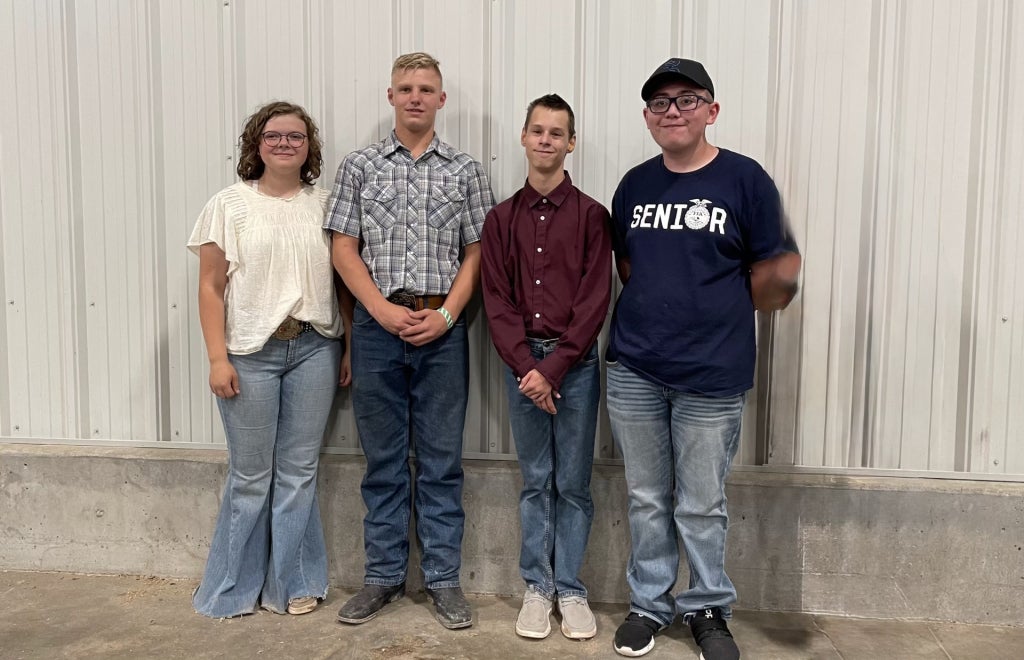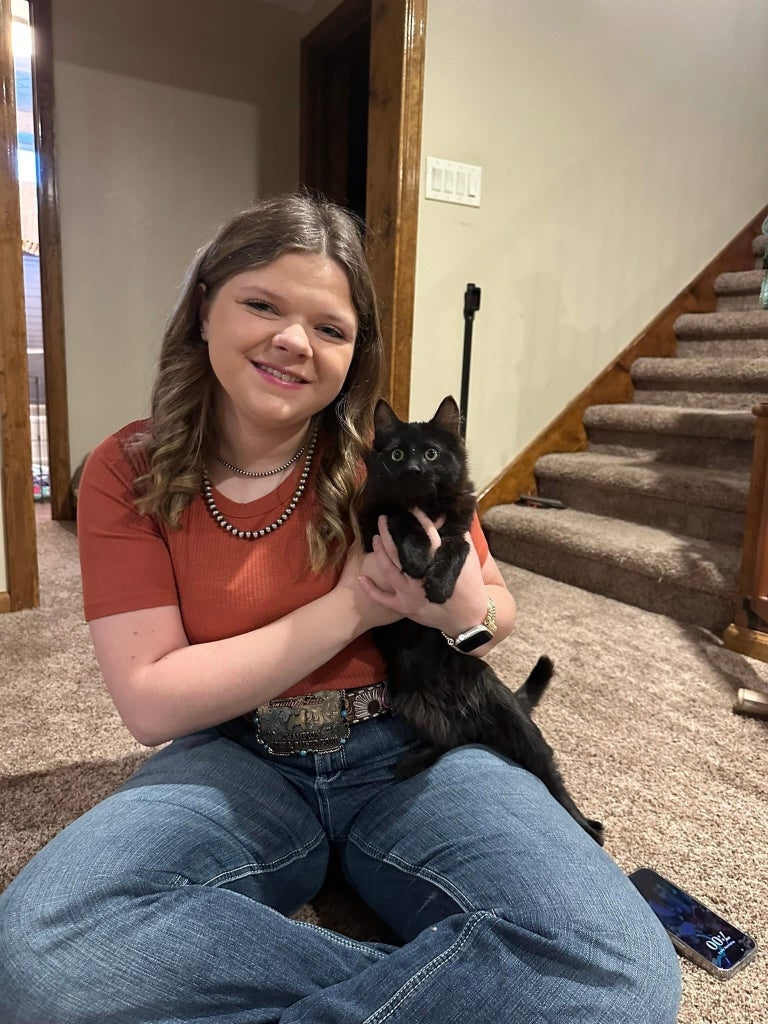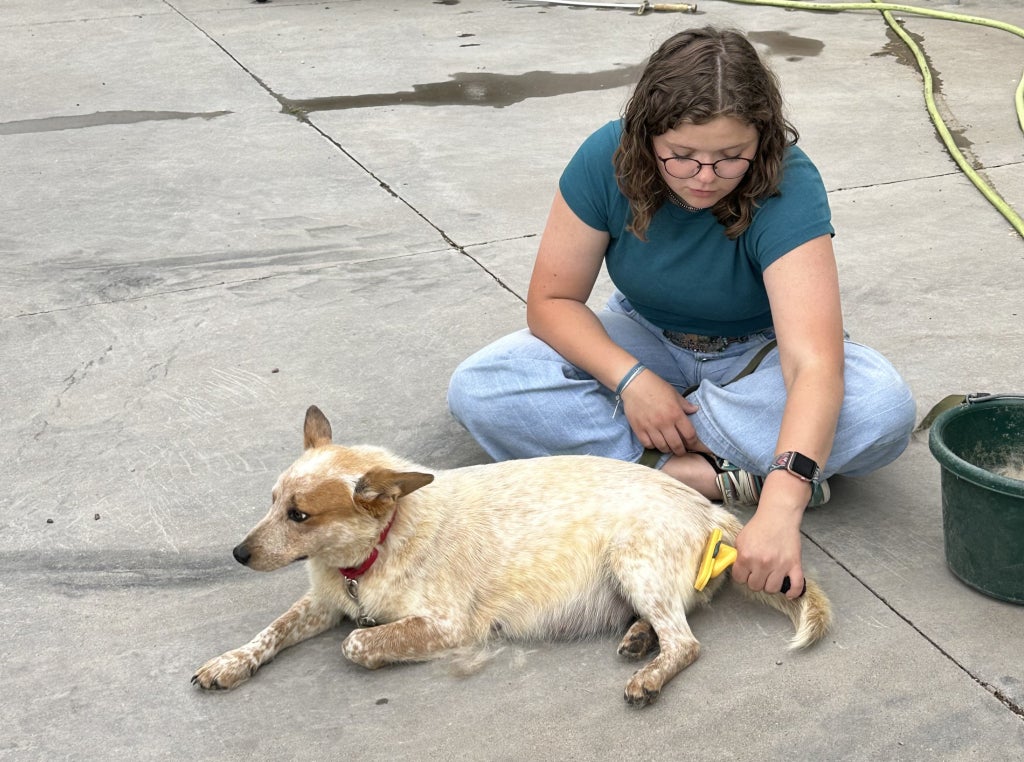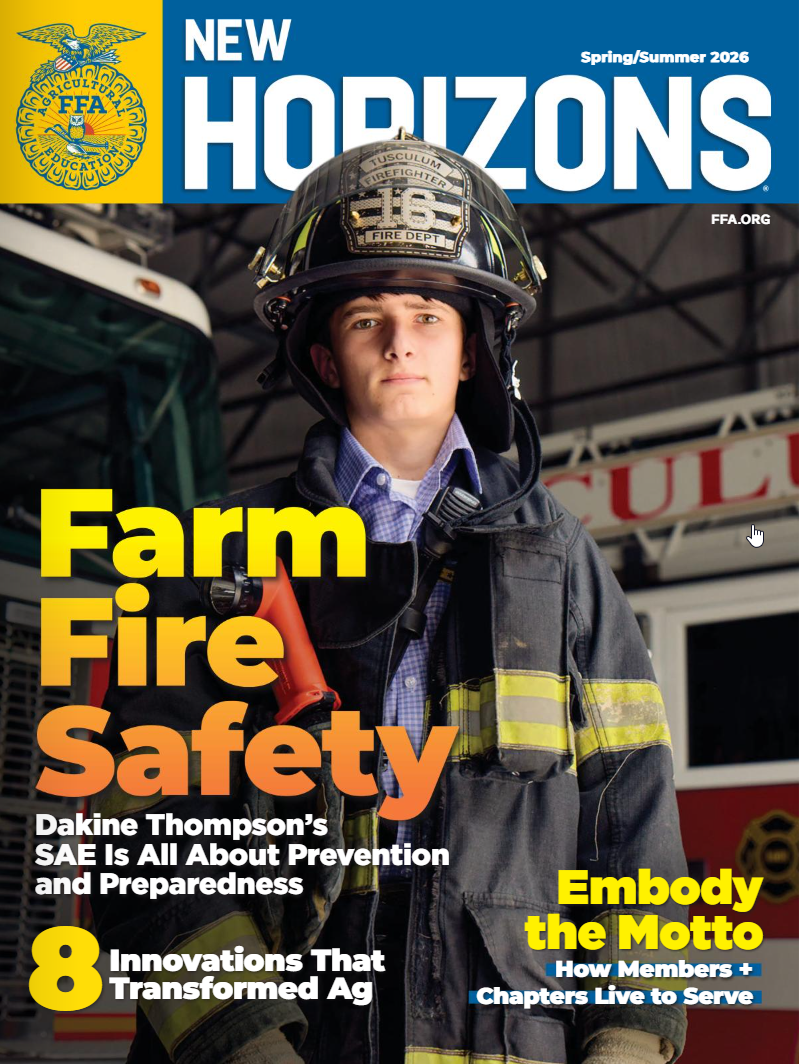5 Tips for Planning Your Next Service Project From a Wyoming FFA Alumna

Callie Rosner (far left) poses with students participating in the Cheyenne Warrior Goat Program.
Callie Rosner, a Cheyenne Frontier FFA Chapter alumna from Wyoming, has built her FFA journey around service. Although her work focuses on animals, her impact extends far beyond them.
Living to Serve
Rosner’s dedication to improving her community spans three service projects. In her initial project, she partnered with local animal shelters. She helped care for pets in need and worked to acclimate them to life in a home. By socializing the animals and building their trust, she made them more adoptable and gave families a better chance of achieving long-term success.
Rosner also turned her attention to cat breeding. She saw that improper breeding practices were introducing harmful genetics into Munchkin cats. Instead of ignoring the issue, she started raising cats herself. She often fosters cats and kittens with unique needs and teaches families about properly caring for pets with genetic abnormalities.

Rosner shows off Toothless, a foster cat with a rare neurological disorder that causes severe balance issues and constant swaying.
Another major project involved her volunteer work with the Cheyenne Warrior Goats program. This program gives students with developmental disabilities the chance to raise and show goats. Rosner provided show stock and supplies, while also guiding students through the process of showing and raising market goats.
Below are Rosner’s five tips for planning your own service project.
1. Identify a need.
Rosner’s projects all began with a problem she noticed in her community: crowded shelters, unhealthy breeding practices or students who lacked access to agricultural experiences.
“The best way to start a new service project is through identifying a problem in your community that you would like to solve,” she says.
2. Use your passions and skills.
Rosner’s love of animals gave her a natural starting point. “FFA turned my love for animals into a passion for helping others,” she says.
She encourages members to start with what they enjoy and use those skills to create service projects that feel meaningful and sustainable.
3. Be patient.
Service takes time, whether it’s acclimating animals to new homes or teaching students how to handle livestock.
“Caring for animals and helping others go hand in hand; both take patience and compassion,” Rosner says. She reminds students that real change often comes in small steps.
4. Don’t worry about being noticed.
Rosner never set out to earn recognition, but her efforts did not go unnoticed. Her dedication to animal care and service led her to earn a national silver emblem award in the small animal production and care agricultural proficiency award area. Even so, she stresses that awards are not the point.
“Leadership isn’t just about what you do,” she says. “It’s about who you help along the way.”
5. Communicate.
Rosner says that much of her success came from working with others. She partnered with shelters, families and school programs to strengthen each project.
“None of it would have been possible if I wasn’t willing to reach out and talk to organizations or people that I could help,” she says.

Rosner grooms a foster dog as a part of her multi-faceted service projects.
“Living to serve” has become Rosner’s personal motto. Throughout her FFA journey, she has embodied true servant leadership.
No matter what project you plan, you can leave a lasting impact on your community when you match your passions and skills with the needs of your community.

